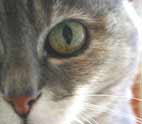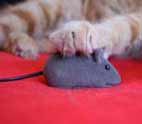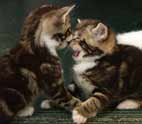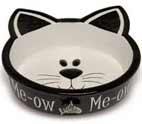Toxic Plants
And Other Poisonous Substances To Cats
Toxic plants, household chemicals and weed killers are just some of the everyday substances that will threaten the safety of your cat.
When you think of home you think of a safe place to be and a safe place for all your family and pets to live in. However most accidents occur in the home and this is true for your cat as well.
It is important that as responsible cat owners we make sure their home and environment is safe.
So I have listed the most common causes of cat poisoning, the most toxic plants and also some other little safety tips, which will ensure you can make your home cat friendly.
How Do Cats Get Poisoned?
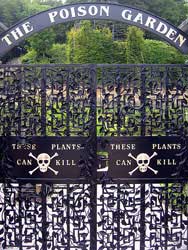
One of the main ways cats get poisoned is by digesting poisons which have gotten onto their feet or fur and while grooming they end up licking the poison and harming themselves. Some substances can be absorbed through the skin and poison your cat that way. However, as we know cats do like to nibble the odd plant or two and this is the problem when there are toxic plants around which will harm them.
The Most Common Toxic Plants
The list of plants which are toxic to your cat is long you may be surprised to find out. I know I was when I discovered just how many plants could be harmful.
However I am not a botanist and this is not a garden website. So I will list the most common types of plants that can be found in peoples homes and gardens. However when you do buy new plants, it is best to ask at the garden centre etc. if they know if the plants are dangerous to cats.
 Foxglove |
 Lilies |
 Monkshood |
 Oleander |
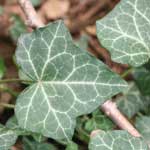 English ivy |
 Tulip (especially the bulb) |
 Daffodil |
 Iris |
 Philodendron |
 Amaryllis |
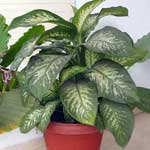 Dieffenbachia |
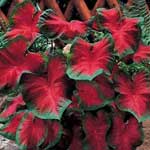 Caladium |
Some of the effects caused by these toxic plants are:
- Throat irritation and burning
- Central nervous system excitement
- Coma
- Cardiovascular failure
Any of the above plants can be life threatening and if you see your cat eating them you must take them to the vets immediately. Do not try to treat your cat yourself or wait to see if they will get sick. Even if they do vomit this does not mean that the poison is out of their system.
Other Dangerous Substances
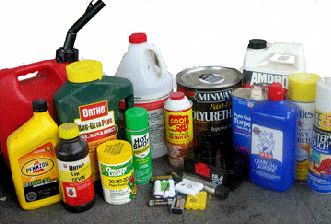
As you would with children in the house it is important to keep household chemicals locked up and out of the way of inquisitive noses. These include:
- Bleach,
- Cleaning fluids,
- Disinfectants,
- Detergents,
- Hair colourings,
- Nail polish remover,
The same goes for your garage and garden chemicals. It is all too easy to spill your can of car oil or weed killer and think Ill clean that later but in the meantime your little cat can walk through it or roll in it. Before you know where you are, you have a very sick kitty indeed.
So items such as:
- Weed killer,
- Oil,
- Brake fluid,
- Antifreeze,
- Slug pellets
- Paint,
- Wood stains etc
Should all be locked away and properly sealed and if any little spillages do occur they should be cleaned up right away.
You may be thinking that it is unlikely that a cat would deliberately drink any or the above rather nasty chemicals. But some of the very strong odours of these chemicals can actually attract your cat. Antifreeze for example has a very sweet smell and some cats have been known to actually drink it.
Toxic Rodents.
Yes you read right. When I say toxic rodents I dont mean that every mouse or rat is poisonous, no, only the ones that have been eating poison themselves. I didnt think of this myself until it was pointed out to me by a local vet, who said that he has often come across sick cats due to the fact that they have ingested poisons while eating rodents.
Unfortunately rodent poison is quite nasty and if your cat is a prolific mouse catcher and eater then they may be at real risk of poisoning. Of course you cant stop your cat from hunting for mice but you can stop them eating them if you see them and you cannot use rodent poison yourself. Humane rodent catchers are much nicer all round, I think, no nasty dead mice rotting away under your floorboards etc.
What Are The Symptoms of Poisoning?
Depending on what and how your cat has been poisoned will affect the symptoms shown. For instance if they inhale a nasty substance like carbon monoxide from gas cookers etc, the symptoms are:
- Dizziness,
- Breathing difficulties,
- Weakness and bright red lips.
If you see any of these symptoms and suspect that your cat may have inhaled a toxic substance, take them out into the fresh air and contact your vet immediately.
For general poisoning due to toxic plants or other poisonous substances the symptoms can include,
- Pain,
- Vomiting,
- Collapse,
- Burns on lips
- Blood in vomit
Again contact your vet immediately.
Other Safety Issues Around The Home
Every year I hear about a cat being involved in some nasty accident involving a washing machine. At first I couldnt believe how common this was, after all I thought, you would notice a cat in a washing machine wouldnt you?
Apparently not. Its all too easy to be distracted by a telephone call or a knock at the door and before you realise what you have done, your cat is on the spin cycle. Nasty.
The problem seems to be that cats like to climb into nice warm places and kittens just love those cosy piles of washing. So the answer is to always, always keep the door to the washing machine shut and if possible keep piles of dirty clothing in a closed room.
If you do have kittens, always make sure you know where they are before you turn that machine on. I recently had to comfort someone who had accidentally killed several kittens in her washing machine as they had crawled into the bundle of clothes and as she rushed around, she just didnt notice this. Lets just say it was NOT very pleasant at all.
So the moral of all this is that when you are a cat owner no matter how busy you are and how innocent something may look, always think, could these be toxic plants?, Have I put the lid back on that bottle?, have I closed that door?.


